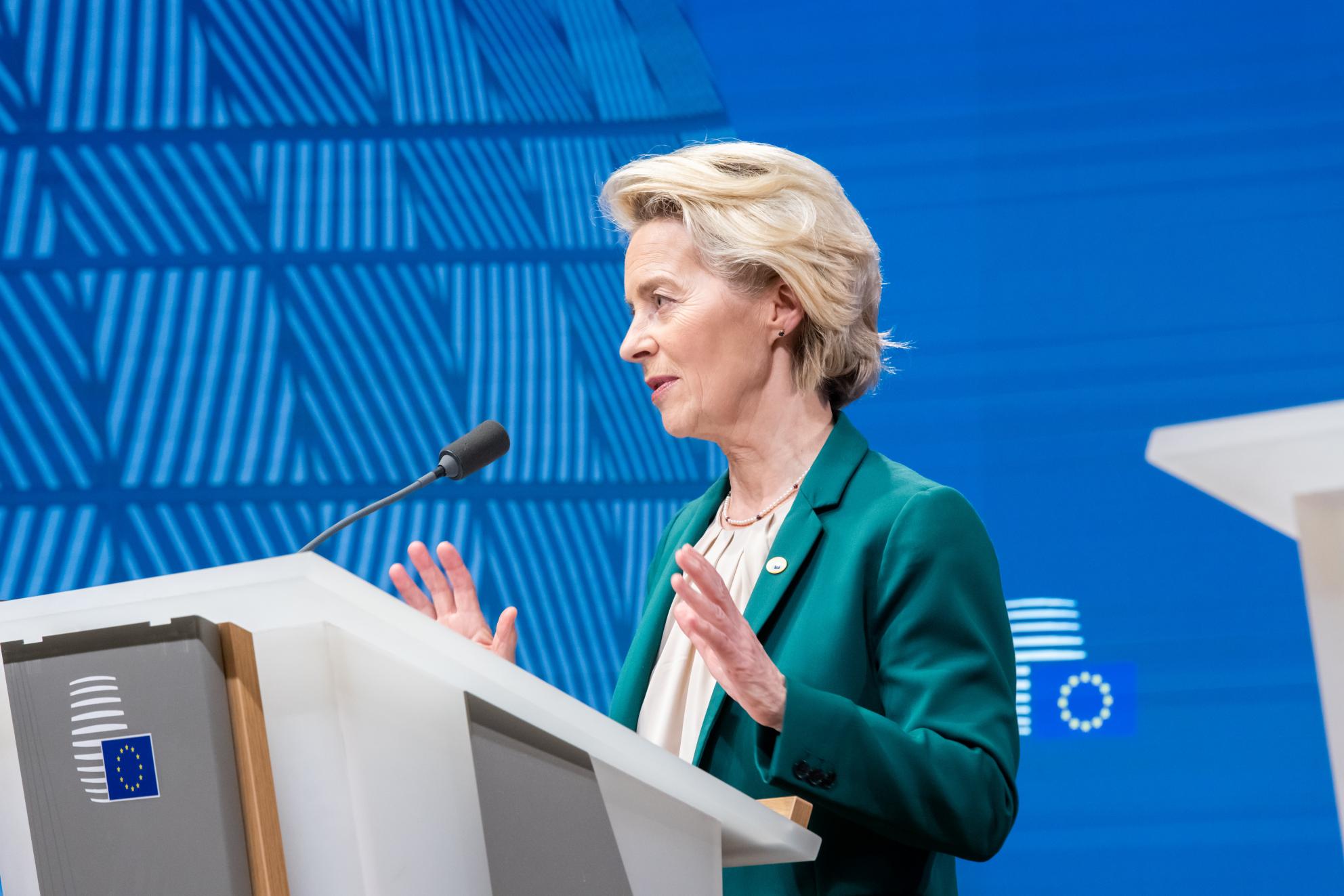In 1994, the Italian philosopher Norberto Bobbio formulated the idea of an “inclusive” political center, which, rather than trying to find a space in the middle, transcends the left-right divide to create a new amalgamation. European Commission President Ursula von der Leyen will have to do just that as she begins her second mandate.
PARIS – The European Parliament’s center held, but only just. Last week, the center-right European People’s Party (EPP), the Progressive Alliance of Socialists and Democrats (S&D), and the centrist Renew Group forged a compromise that allowed Ursula von der Leyen’s new Commission to take office on December 1. Tensions erupted over the Italian Vice President, Raffaele Fitto, a member of Giorgia Meloni’s Brothers of Italy party. The Greens and the European Conservatives and Reformists (which includes the Brothers of Italy) ultimately pushed von der Leyen’s Commission over the line.
Meloni, Italy’s prime minister, has been the surprise story of Brussels, with her unusual blend of right-wing and pro-EU policies, including a staunchly pro-Ukrainian stance. Given this, von der Leyen famously – and controversially – refused to rule out working with the far right during her re-election bid.
In 1994, the Italian philosopher Norberto Bobbio published a book titled Left and Right: The Significance of a Political Distinction. An instant success, it was released a few months before the modern-day populist Silvio Berlusconi – a media mogul whose strongman persona and frequent legal trouble anticipated Donald Trump – won his first Italian election.
Berlusconi’s coalition was firmly on the right. His Forza Italia party was allied with Lega Nord and the post-fascist National Alliance, the predecessors of today’s Lega (headed by Matteo Salvini) and Brothers of Italy, respectively. In effect, Meloni, who was first elected to the lower house of the Italian parliament in 2006 and was later appointed Minister of Youth in the fourth Berlusconi government (2008-11), has simply replaced Berlusconi as the leader of this coalition.
The 1994 election also marked the fall of the Christian Democrats, who had dominated Italian politics since the end of World War II as a counterweight to the Communists. The party’s fall was largely its own doing, as it had become mired in the Tangentopoli (Kickback City) corruption scandal. But the collapse led to the ascendance of Italy’s far right. Is von der Leyen, herself a Christian Democrat, doomed to repeat that sequence, handing over the reins to Meloni?
Bobbio sought to defend the continued existence of a meaningful left-right divide by arguing that the left favors equality whereas the right favors inequality. But what is often overlooked is that he also provided two ways to think about centrism – insights that von der Leyen would do well to appreciate.
The “included” center, according to Bobbio, was neither left nor right, but a space in between. Similarly, in the European Parliament, von der Leyen’s coalition of the EPP, the S&D, Renew, and the Greens is neither the left nor the Euroskeptic right, relegating both groups to the extremes.
More interesting was Bobbio’s formulation of the “inclusive” center, which, rather than trying to find a space in the middle, goes beyond the left-right divide to create a new amalgamation. In short, the center is both left and right and something else. What that something else is depends on how it comes about. If complementary forces are at play, the result will be a compound – the addition of right and left. But if they are oppositional, it will be a synthesis.
For centrism to flourish in the EU, it must find a new synthesis. It cannot simply be the addition of old forces. Perhaps the most promising proposal comes from center-right politicians such as Polish Prime Minister Donald Tusk, who fared well against the far right recently, and – to a lesser degree – British Prime Minister Keir Starmer, who campaigned on securing the UK’s borders. Their winning formula seems to be embracing gay rights and abortion rights and promoting climate action – all things the far right hates – while taking a tough stance on immigration.
Von der Leyen is also firm on immigration and supportive of social rights. But to keep Meloni in check, she must create something new. That could be the “clean industrial deal” that she pledged to advance during the first 100 days of her second mandate in an effort to bring together Green and EPP MEPs who disagree on the Green New Deal.
As a resolute defender of Ukraine, von der Leyen has also proposed a “true European defense union” and called for more spending on EU security. Moreover, she appointed a first-ever commissioner for housing – an area the Commission has little power over – to devise a European affordable-housing plan (a demand from the left) and pledged to reduce the burden of EU law to boost competitiveness (a demand from the right). Are these examples of inclusive centrism: both left and right and something else?
Former European Central Bank president Mario Draghi’s recent call for an ambitious, investment-led industrial renaissance in the EU could be the something new that von der Leyen needs. She has promised to create a task force to implement Draghi’s plan and announced that a “competitiveness compass” aimed at closing the innovation gap with the United States and China will be her new Commission’s first initiative.
There will surely be resistance to such efforts from national governments. But in her first mandate, von der Leyen was widely praised for the joint purchase of vaccines during the pandemic and the creation of the EU-wide COVID-19 recovery fund – measures that are similar in scope to the recommendations in Draghi’s report.
To be sure, she was also criticized for a lack of transparency and relying too heavily on a small coterie of advisers, and must therefore avoid falling into the same trap as the Italian Christian Democrats. Amid so much uncertainty, one thing is clear: von der Leyen will need all the conviction she can muster.
About the Author
Hugo Drochon, Associate Professor of Political Theory at the University of Nottingham, is the author of Nietzsche’s Great Politics (Princeton University Press, 2016).



